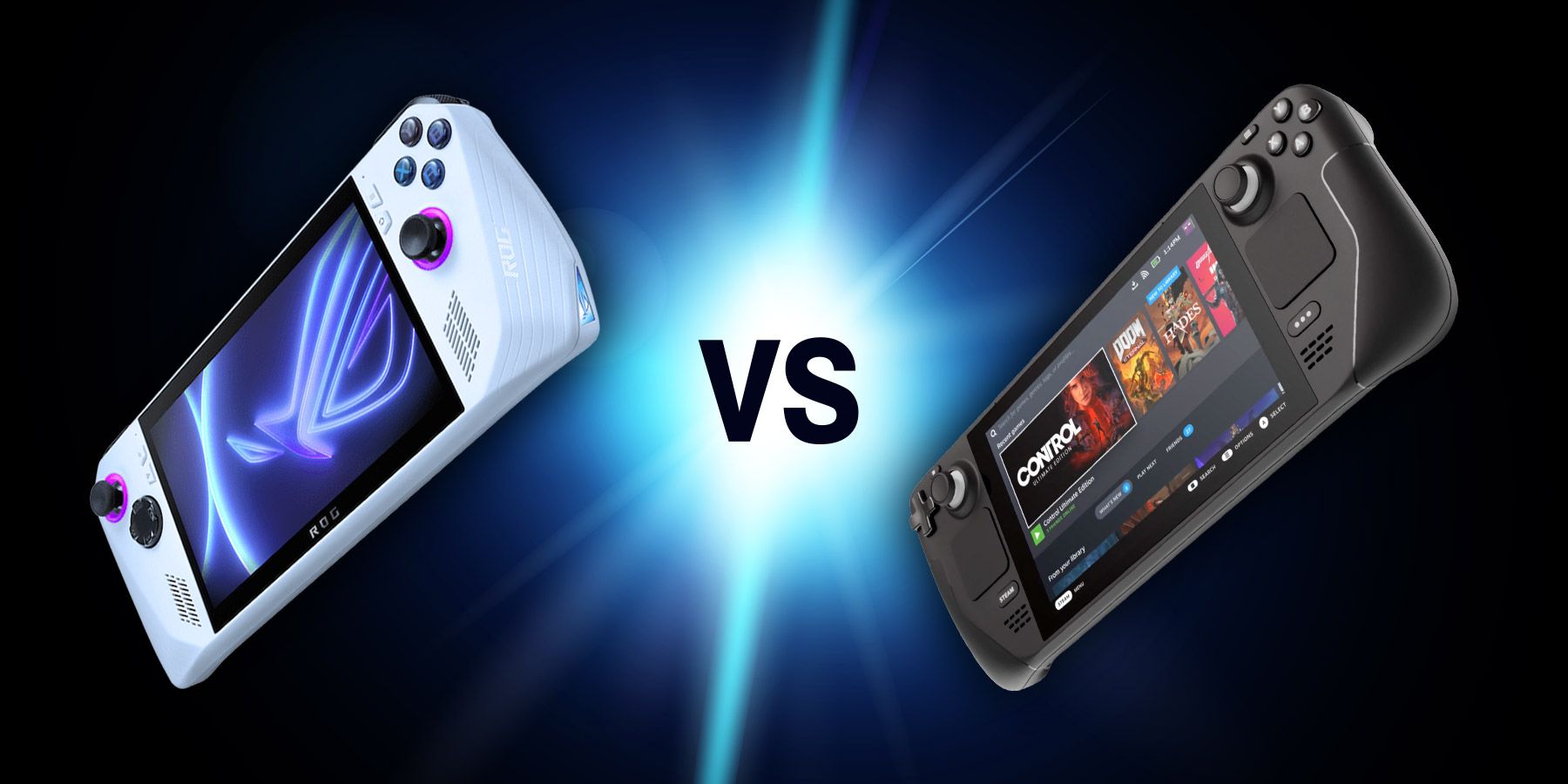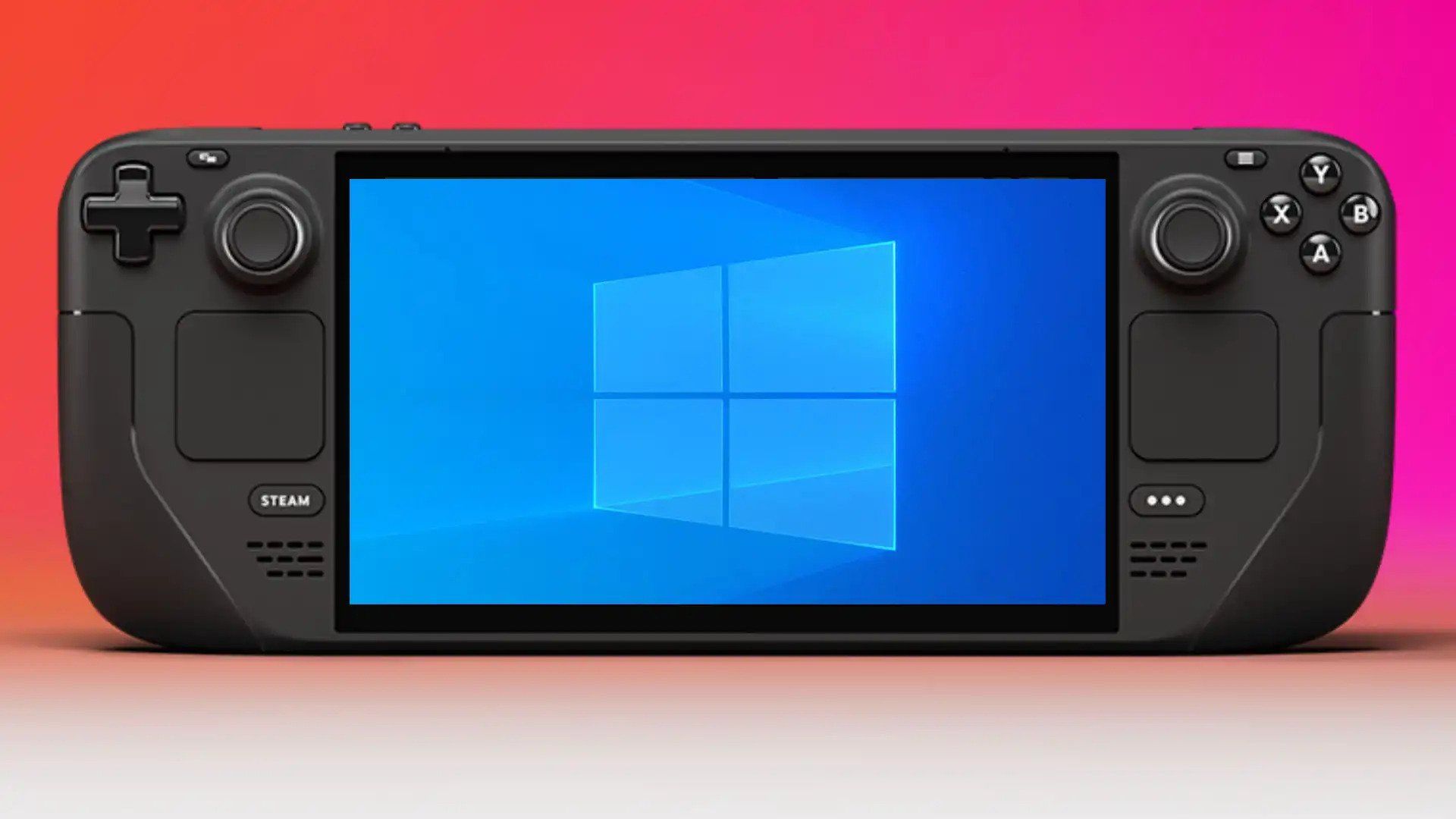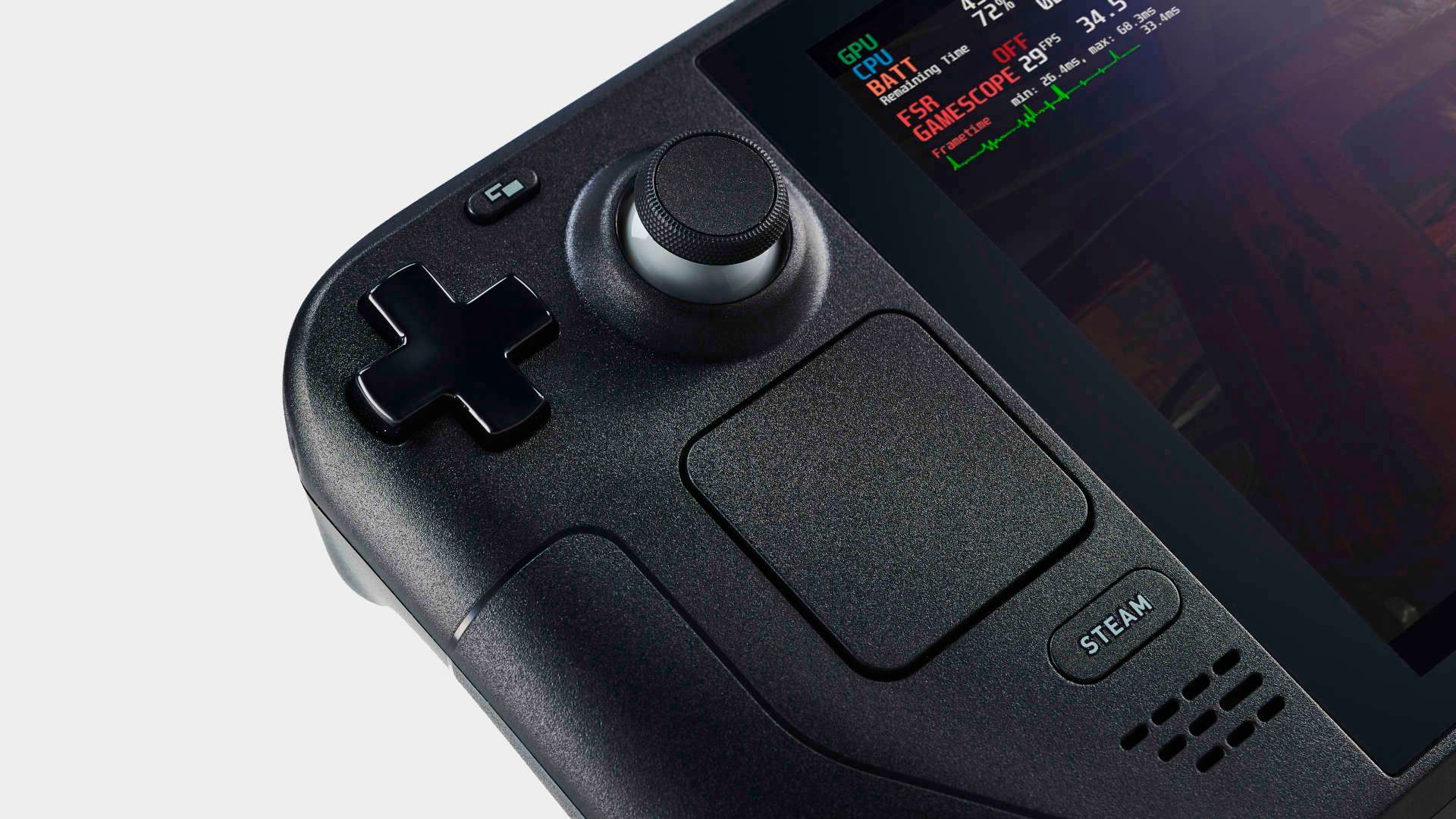When Valve first revealed the Steam Deck in 2021, many began to make the comparison between the powerful handheld and the Nintendo Switch. The truth is that the Steam Deck was never meant to compete with the Nintendo Switch and instead was a hardware solution for a much more niche handheld market. Fast-forward to 2023 and gamers are now seeing more handheld PC gaming devices being announced, with the most prominent among them being the Asus ROG Ally. With a comparable price point and some seriously impressive specs, the ROG Ally is positioned as a direct competitor to the Steam Deck alongside featuring improvements over Valve's hardware.
In order for Valve to continue holding the top spot in the handheld PC race, there are some subtle improvements that could (and should) be made to the Steam Deck in response to the revealed specs of the ROG Ally. In addition to figuring out a way to improve the Steam Deck's notoriously fickle battery life, Valve should take a page from the ROG Ally and provide players with more options to launch their games other than the Steam OS or compatibility tools like Proton.
The Steam Deck Needs a Dedicated Windows App
Valve has been diligent toward working on making the number of Steam Deck-compatible games an ever-growing figure, but there are still plenty of titles that require a compatibility tool to work on the handheld. PC or Mac users can simply launch a game directly from the source files and not be required to rely on the Steam launcher. Unfortunately, Deck users don't have that convenience. For any game that originally required use of the Windows OS to launch, Deck users are currently locked into using the Proton compatibility tool, which is still somewhat unstable for certain titles.
A workaround to this problem would be for Valve to partner with Microsoft in bringing official Windows compatibility to the Steam Deck. As a Windows OS-based handheld, the Asus ROG Ally is not required to use Steam as its only game launcher, opening up the possibility for players to use the Epic Games Store, GOG, or even Game Pass for Windows to launch titles to play on the go.
The Steam Deck has an impressive number of existing owners, but those same users have also been heavily reliant on the online forums and subreddits dedicated to "hacking" the Deck in order to launch some of their favorite titles. Not only would an official Valve and Microsoft partnership help bring more stability to Windows-based PC titles, but it might also open the door for an official Game Pass launcher for the Steam Deck.
Valve Should Implement a Fix for the Steam Deck's Battery Life
One of the things that has been a consistent Achilles heel of the Steam Deck is its relatively short battery life. While several tricks exist to extend the endurance of the handheld's battery, running games at full performance settings yields roughly two hours of play. Looking at the reported eight hours of battery life using similar settings on the ROG Ally, two hours of play time seems paltry in comparison. Valve has implemented firmware updates that improve the performance of the Steam Deck before, but they should take measures one step further in response to receiving a direct competitor.
Extending the battery life of the Steam Deck should be a priority for Valve with equal importance to making games Deck Verified. The Steam Deck has been the sole entry in the "high-end handheld PC" market for roughly over a year, but the emergence of the Asus ROG Ally as a direct competitor means that Valve can't pass up an opportunity to improve the hardware. With handheld gaming of high-end titles being one of the main selling points of each system, the Deck needs more life while untethered from a power supply.
The Asus ROG Ally launches on May 11.



